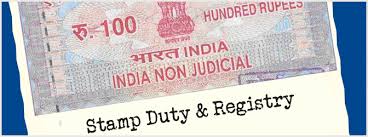S.M. Jhunjhunwala, J.@mdashThe following question has been referred for the opinion of this court by the Income Tax Appellate Tribunal, u/s 256(1) of the Income Tax Act, 1961, at the instance of the Revenue :
"Whether, on the facts and in the circumstances of the case, the Appellate Tribunal was right in holding that the expenditure of Rs. 10,029 as maintenance expenses and Rs. 11,375 as depreciation allowance, for the assessment year 1977-78 in relation to the flats at Jupiter Apartments and Sunita Apartments, was not expenditure incurred on the maintenance of residential accommodation in the nature of a guest house, and was, therefore, an admissible deduction?"
2. The assessee is a private limited company. In the assessment year 1977-78, the assessee claimed maintenance expenses of Rs. 10,029 and depreciation of Rs. 11,375 on flats bearing Nos. 163 and 164 in Jupiter Apartments and one flat in Sunita Apartments at Cuffe Parade, Bombay. The Income Tax Officer allowed these claims treating these flats as not in the nature of guest houses. According to the Commissioner of Income Tax, these flats were purchased by the assessee to provide accommodation to the representatives and crew members of non-resident companies of which the assessee-company was freight and shipping agent. According to the Commissioner of Income Tax, these flats should have been treated as guest houses and in view of section 37(4) of the Income Tax Act, 1961, the expenses should have been disallowed by the Income Tax Officer. The Commissioner initiated proceedings u/s 263 of the Income Tax Act. The assessee contended before the Commissioner that these flats were purchased to provide facilities to representatives of principal non-resident shipping companies in order to improve their mutual relationship. It was further contended that it was never the intention of the assessee to maintain or run a guest house in defiance of section 37(4) of the Act. The Commissioner of Income Tax held that the bar u/s 37(4) of the Income Tax Act was absolute and these flats could only be treated as guest houses. The Commissioner directed the Income Tax Officer to make fresh assessment by disallowing maintenance expenses and depreciation claimed by the assessee. The Tribunal upheld the action of the Income Tax Officer, reversed the order of the Commissioner of Income Tax and allowed the appeal of the assessee and held that these flats could not be treated as guest houses. This finding of the Tribunal has been challenged by the Revenue since, according to Dr. Balasubramaniam, these flats belonging to the assessee should have been treated as guest houses of the assessee-company.
3. The facts not in dispute are as follows :
(i) the assessee-company owned these flats in the relevant assessment year;
(ii) the assessee-company incurred expenditure on maintenance of these flats which amount along with the depreciation was claimed as allowance by the assessee-company during the assessment year 1977-78;
(iii) in the course of the assessee''s business, the shipping crew and representatives of non-resident shipping companies having dealings with the assessee-company were put up in these flats; and
(iv) the assessee-company''s own directors or employees had not used these flats as their residence.
4. Section 37(4) of the Act, which is relevant to consider the controversy involved, reads as under :
"37. (4) Notwithstanding anything contained in sub-section (1) or sub-section (3), -
(i) no allowance shall be made in respect of any expenditure incurred by the assessee after the 28th day of February, 1970, on the maintenance of any residential accommodation in the nature of a guest house (such residential accommodation being hereafter in this sub-section referred to as ''guest house'');
(ii) in relation to the assessment year commencing on the 1st day of April, 1971, or any subsequent assessment year, no allowance shall be made in respect of depreciation of any building used as a guest house or depreciation of any assets in a guest house :
Provided that the aggregate of the expenditure referred to in clause (i) and the amount of any depreciation referred to in clause (ii) shall, for the purposes of this sub-section, be reduced by the amount, if any, received from persons using the guest house :
Provided further that nothing in this sub-section shall apply in relation to any guest house maintained as a holiday home if such guest house -
(a) is maintained by an assessee who has throughout the previous year employed not less than one hundred wholetime employees in a business or profession carried on by him; and
(b) is intended for the exclusive use of such employees while on leave.
Explanation. - For the purposes of this sub-section, -
(i) residential accommodation in the nature of a guest house shall include accommodation hired or reserved by the assessee in a hotel for a period exceeding one hundred and eighty-two days during the previous year; and
(ii) the expenditure incurred on the maintenance of a guest house shall, in a case where the residential accommodation has been hired by the assessee, include also the rent paid in respect of such accommodation."
5. This sub-section was inserted by the Finance Act, 1970, with effect from April 1, 1970, which prohibits totally any allowance under this section in respect of any expenditure on the maintenance of a guest house incurred after the 28th day of February, 1970, and further prohibits any depreciation allowance in respect of any building used as guest house unless the guest house is maintained exclusively as a holiday home for the employees and the assessee has at least a 100 wholetime employees.
6. The term "guest house" has not been defined in the Act. "Guest house" is a house for housing guests either gratuitously or at a concessional rate. Though while considering the scope of section 37(3) of the Act, the Madras High Court in the case of
7. Taking the totality of the circumstances into consideration, in our view, by providing accommodation to the members of the crew as also to representatives of the assessee''s principal non-resident shipping companies in these flats, the assessee-company had treated these flats as its own guest houses and since these guest houses were not maintained exclusively as a holiday home for the employees of the assessee-company, the assessee-company was not entitled to allowance u/s 37(4) in respect of any expenditure on maintenance thereof incurred after February 28, 1970, nor to any depreciation allowance. The Tribunal was wrong in setting aside the order of the Commissioner of Income Tax and upholding the action of the Income Tax Officer. Hence, we answer the question referred in the negative and in favour of the Revenue.
8. In the circumstances of the case, there shall, however, be no order as to costs.

